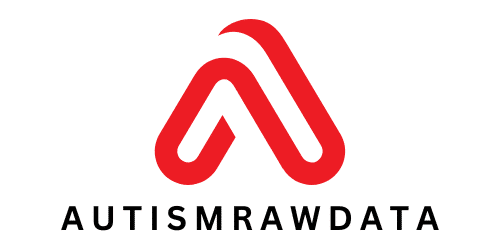Owning a Boston Terrier can be a joyful experience. These compact and well-muscled dogs are friendly, bright, and amusing to be around. However, they can sometimes be picky eaters. This can cause much frustration and concern, especially for first-time dog owners. Today, we will explore the reasons behind this particular breed’s fussy eating habits, and how to tackle it effectively. We will delve into the different food options available, the role of protein, the benefits of grain in a dog’s diet, and some feeding techniques that might come in handy.
Understanding Boston Terriers’ Eating Habits
Boston Terriers are known for their tuxedo-like coat, compact size, and friendly nature. They are also recognized for their selective eating habits. What’s key to understand here is that their picky tendencies are not always due to their fussiness. Medical conditions, changes in surroundings, or even psychological factors can contribute to their eating behavior.
A lire aussi : What Are the Best Homemade Toy Ideas for an English Bulldog with Strong Jaws?
Boston Terriers, like any other breed, require a diet that is rich in protein, carbohydrates, fats, vitamins, and minerals. Overfeeding or underfeeding can lead to health problems. Providing the right type of food for your Boston Terrier is essential for maintaining optimal health.
There’s a wide array of commercial dog foods available in the market. Choosing the right one needs some understanding of your pet’s dietary needs. Let’s look at what the best foods for Boston Terriers are, evaluating both dry and wet food options.
Cela peut vous intéresser : How to Choose the Correct Substrate for a Ball Python’s Vivarium?
Best Dry and Wet Food for Boston Terriers
Dry food, or kibble, is an excellent choice for Boston Terriers as it contains all the necessary nutrients. Plus, it’s convenient for serving and helps in cleaning their teeth. Look for a high-quality dry food that lists a source of protein, such as chicken or beef, as its first ingredient.
Wet food, on the other hand, is usually more appealing to picky eaters because of its aroma and texture. It also provides hydration. However, it’s crucial to ensure that your pet gets enough dental exercise, as wet food can contribute to the build-up of tartar.
Selecting a food type often depends on your dog’s preference and health conditions. If your Boston Terrier refuses dry food, you can try mixing it with wet food to enhance its appeal. Maintaining variety in their diet can also help prevent boredom and fussiness.
The Role of Protein in Your Boston Terrier’s Diet
The significance of protein in your Boston Terrier’s diet can’t be overstated. It’s necessary for growth, development, and energy. The protein content in your pet’s food should be around 18-25%.
Chicken is a great source of protein that most dogs love. Beef, turkey, and fish are other protein-rich alternatives. If your Boston Terrier is a fussy eater, you might have to experiment with different protein sources to find what they enjoy eating. Always ensure that the protein is from a high-quality source.
The Benefits of Grain in a Boston Terrier’s Diet
Though grain-free diets have gained popularity recently, grains in your dog’s food can be beneficial. Rice, barley, oats, and corn provide necessary carbohydrates, giving your Boston Terrier the energy they need for their daily activities.
Grains also contain essential nutrients like fiber, minerals, and vitamins. They promote digestive health and help maintain a healthy body weight. However, it’s essential to check if your dog is allergic to any grain before adding it to their diet. A vet can conduct a simple test to confirm this.
Techniques for Feeding a Finicky Boston Terrier
If your Boston Terrier is a picky eater, there are a few feeding techniques you can try. These aim to make the eating experience more enjoyable for your dog, encouraging them to eat their food.
Firstly, stick to a feeding schedule. Dogs thrive on routine, and a consistent feeding schedule can help your Boston Terrier feel secure and comfortable, encouraging better eating habits.
Next, make mealtime interactive. Use puzzle feeders or toys that dispense food slowly. This will not only make eating fun for your dog but also provide mental stimulation.
Lastly, praise your dog when they eat their food. This positive reinforcement can help change their perception of mealtime.
Feeding a fussy Boston Terrier may seem challenging, but the right approach, a balanced diet, and a bit of patience can bring about positive change. Remember, the goal is to ensure that your pet is not just eating but enjoying their food and staying healthy.
Additional Considerations for Boston Terriers with Sensitive Stomachs
If your Boston Terrier has a sensitive stomach, it might explain their fussy eating habits. Dogs with digestive issues often refuse to eat certain types of food to avoid discomfort. If you suspect that your Boston Terrier has a sensitive stomach, it’s best to consult with a vet.
When selecting dog food for Boston Terriers with sensitive stomachs, choose options with ingredients that are easy to digest. Foods with sweet potato are often a good choice since they’re rich in dietary fiber and can help soothe a sensitive digestive system. Additionally, look for dog foods that contain probiotics, which can help improve gut health.
Avoid dog foods with artificial colors, flavors, or preservatives, as these can further upset your pet’s stomach. Also, steer clear of foods known to cause allergies in dogs, such as soy, dairy, and wheat.
Boston Terriers are small breed dogs, so their meals should be appropriately portioned to avoid overeating, which can lead to stomach upset. Feed them small, regular meals throughout the day instead of one large meal.
How Physical Activity Influences Your Boston Terrier’s Eating Habits
Physical activity is as crucial for Boston Terriers as a well-balanced diet. Regular exercise can stimulate your dog’s appetite and help them maintain a healthy weight. This breed isn’t known for being overly active, but they do enjoy activities like walks, playtime, and even dog sports.
Dog sports, in particular, can be an excellent way for your Boston Terrier to expend energy and stimulate their appetite. Agility training, obedience competitions, and flyball are just some of the sports that this breed can excel in. However, remember that every dog is different, so it’s essential to find an activity that your Boston Terrier enjoys and can safely participate in.
Moreover, physical activity can also serve as a bonding time between you and your Boston Terrier. Spending quality time together can help create a positive association with meal times, especially if you reward your dog with their favorite food after a fun session of physical activity.
Conclusion: Balancing Patience and Persistence in Feeding a Boston Terrier
Feeding a fussy Boston Terrier may seem like a challenging task, but remember that patience and persistence are key. Understanding your dog’s eating habits, offering high-quality dog foods, and ensuring a balanced diet rich in protein, fat, and essential nutrients can all help improve your dog’s eating habits.
It’s also important to consult with a vet if you suspect any underlying health issues, such as a sensitive stomach, that might be contributing to your Boston Terrier’s fussy eating habits. Additionally, keep in mind that physical activity plays a crucial role in stimulating your dog’s appetite and maintaining a healthy weight.
In conclusion, finding the best approach for feeding a fussy eater among Boston Terriers is all about understanding your dog’s individual needs and adapting accordingly. A happy, healthy Boston Terrier can bring endless joy and companionship, making all your efforts worthwhile.






